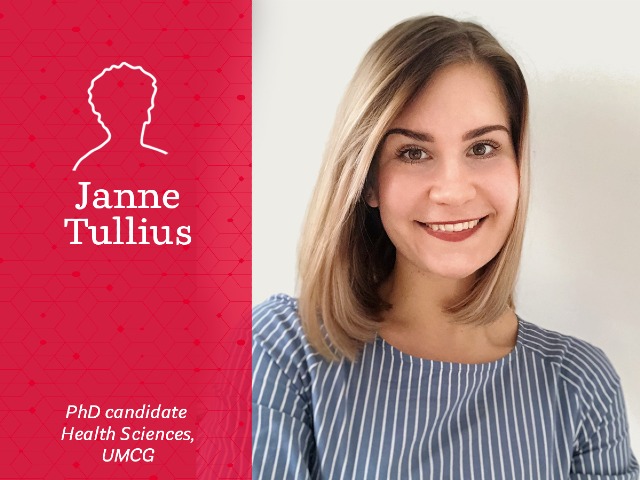ATN blog - “It is not just in your head”: The power of knowledge for mental health promotion
| Datum: | 22 november 2021 |

“Knowledge is power” is a phrase attributed to Francis Bacon (1597) that may often be used to describe the importance of knowledge for advancement and liberation but might as well be applied to one of the most pressing public health crises of the 21st century: the rise of mental health problems. While the term ‘mental health’ is nowadays frequently being used and awareness has heightened, mental health and illness remains burdened by stigma, shame, and negative attitudes. With our research, we hope to give our youth power by improving mental health knowledge, attitudes, and skills to self-manage their mental health and improve help-seeking.
Mental health problems have steadily been on the rise in recent decades, accelerated through the technological evolution, heightened workload and productivity pressures, societal pressure, and, most recently, a global pandemic. Mood, eating, and substance-abuse disorders, and suicide-related outcomes have significantly increased in all age groups, which has resulted in long waiting lists and an overloaded mental health care system in many countries around the globe. While physical complaints are mostly visible to the human eye and thus accepted as a bearable level of human invincibility, mental health problems often remain to be devalued in its significance.
“People don’t understand that it’s not ‘just in your head’ when you have a depression. You also don’t say that asthma is ‘just in your lungs’.” (Female, 15 years old)
While some think that the current generations are just “too soft” or “not resilient enough” to deal with daily stressors, it is often being ignored that the demands on the members of our society have skyrocketed as to which consequences we are now facing. Even though the number of mental health problems among all age groups continue to grow rapidly, the rate of acceptance and understanding towards mental health problems has not simultaneously risen . When left untreated or not appropriately paid attention to, mental health problems have the potential to develop into severe mental illnesses, physical complaints, and life-long disadvantages such as social exclusion, and less educational and job opportunities.
Unfortunately, myths and misinformation regarding mental health and illness are still commonly being shared. As a result, many people remain unknowledgeable about causes, manifestations, and treatments of mental health problems, how to obtain and maintain positive mental health, how to identify symptoms of mental health problems in themselves or others, and where, when, and how to seek help, if needed.
“I think more attention should be paid to mental health, for example by sharing experiences and learning how it actually feels to be depressed and how to deal with that, so that you develop a better understanding of people with mental health issues and be less judgmental about it.” (Female, 17 years old)
Engaging in healthy mental health behaviors starts with the knowledge and awareness of mental health promotion, which is rarely a substantial part of one’s upbringing. Internationally, mental health education from a young age (e.g., kindergarten or primary school) by means of opening the conversation about mental health, mental illness, vulnerability, positive mental health, coping, emotions, and feelings has been found to be an effective strategy to develop healthy mental health behaviors. Teaching children and adolescents about mental health and illness and increasing their related knowledge and competencies has been shown to decrease mental health stigma and increase symptom recognition and help-seeking behaviors.
Despite these promising results, mental health education is still underprioritized many countries around the world, including the Netherlands, but should be made a priority in the education system. Our research focuses on this gap in the scientific literature and the Dutch education system. So far, through focus groups with both adolescents and educators, we have assessed and identified experiences with mental health and their needs for a mental health literacy intervention in schools. Continuing the co-creation process and actively involving adolescents and secondary school educators, we will create a mental health education intervention for the Dutch secondary schools that will equip adolescents as well as educators with the necessary mental health knowledge, attitudes, and skills they require to self-manage their mental health and improve help-seeking and coping strategies.
Knowledge about mental health and illness is not only power, but also the key to autonomous, timely, and informed decisions about one’s mental well-being, which should not be withheld from members of a healthy society, but actively brought to them starting at an early age. By spreading knowledge and reliable information, we may be able to break down the stigma, shame, and negative attitudes surrounding mental health and illness in our society.
Janne Tullius is a PhD candidate in the Department of Health Sciences, UMCG conducting qualitative and quantitative research with the aim to explore and increase mental health competencies and skills in Dutch adolescents. She is being supervised by Dr. Andrea de Winter and Prof. Menno Reijneveld from the Department of Health Sciences, UMCG.
This blog was made possible by the Aletta Talents Network. If you would like to contribute a blog for the ATN, please contact Tom at t.a.lowe rug.nl
Click here to join the Aletta Talents Network!



